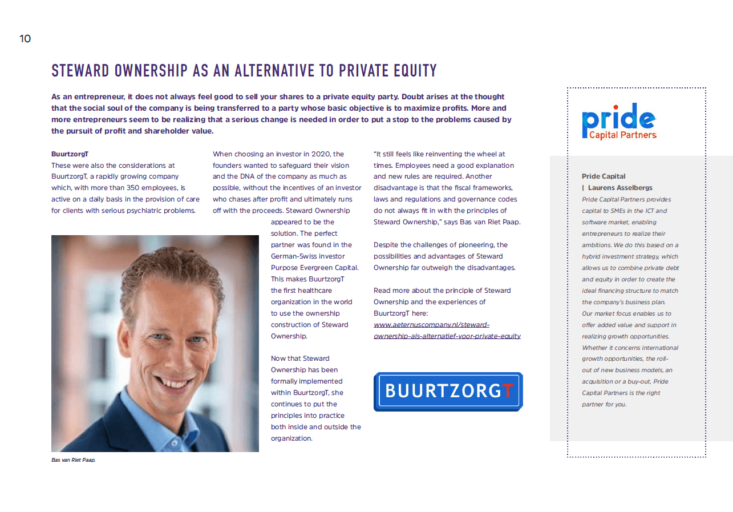The price was also part of a hurdle that – in retrospect – proved the most challenging: bringing together the different interests of each shareholder. As mentioned earlier, they were not all in the same league. This is no exception, according to Jetten. While some were concerned about the continuity of the business after the takeover, for others it was primarily an investor’s decision. “It is very important for the further course of a project that you first get all the shareholders on board. We even make it a condition to be able to start a sales process. That was also the case in this instance,” says Jetten.
During the streamlining of these thoughts, emotions sometimes ran high, Richard, one of the four shareholders, also acknowledges. “We found this a difficult phase. The various interests became clear during the discussions and were all put on the table. It was a puzzle that seemed impossible to solve at first.” It is a situation that Aeternus’ M&A strategists encounter more often. “Our job is to listen carefully to all those different opinions and to find the right mode in doing so,” Jetten continues. “We bring years of deal making experience to bear in doing so, of course. That’s how we finally managed to make clear agreements on the desired selling price and all the conditions. We put these in writing so that there would be no ambiguity later in the process.”




















